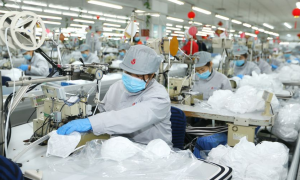Controversy in the wake of the execution of a prominent Shiite cleric by Saudi Arabia was followed by attacks against Saudi Arabia's embassy in Tehran, leading the Kingdom and some of its regional allies to sever ties with Iran.
Saudi Arabia executed Shiite cleric Nimr al-Nimr along with 46 others over terrorism charges Saturday, sparking protests in Shiite-dominated Iran during which angry mobs stormed and set fire to Saudi Arabia's Embassy in Tehran and its Consulate in the city of Mashhad.
Saudi Arabia announced its dissolution of diplomatic ties with Iran Sunday, requesting all Iranian diplomats depart the country within 48 hours.
Following Saudi's announcement, three Sunni Muslim countries joined the Arab kingdom Monday in severing or downgrading their diplomatic ties with Iran.
Bahrain and Sudan announced they will cut diplomatic relations with Iran Monday, declaring that Tehran interferes in the Arab states' affairs.
In addition, the United Arab Emirates (UAE) decided to downgrade its diplomatic relations with Iran Monday and reduce the number of Iranian diplomats in the country.
Over and above, Saudi Foreign Minister, Adel al-Jubeir, announced Monday that Saudi Arabia will cease air traffic with Iran, placing a ban on its citizens from travelling there, reported Al Arabiya local news.
He also said that severing relations covers commercial ties, whereas Iranian pilgrims are always welcome in Saudi Arabia.
Escalated tensions between two key players in the troubled Middle East's political affairs, sparked concerns from various parts of the world.
The European Union (EU) Monday urged concerned parties to act responsibly towards recent events between Iran and Saudi Arabia, the cause of a current strained diplomatic situation between the two countries.
"We expect all regional powers to act responsibly toward this volatile situation," EU foreign policy chief, Federica Mogherini's spokesperson, Catherine Ray, briefed a press conference.
Ray informed reporters the EU would continue to closely monitor the situation between Iran and Saudi Arabia, adding that dialogue was ongoing on all levels with its partners.
Mogherini contacted her Iranian and Saudi counterparts Sunday, advocating for effort from both sides to avoid further escalation of tensions.
The German government also called on Saudi Arabia and Iran Monday to recommence dialogue despite recent souring of diplomatic relations between both countries.
"We support both countries using all possible avenues to improve their relations," said German government spokesman Steffen Seibert.
Seibert stressed that an amicable relationship between the two countries is fundamentally important in resolving the crises in Syria and Yemen, as well as regional stability.
Moreover, France called on both Saudi Arabia and Iran to moderate the escalation of the diplomatic row between the two Middle Eastern powers, a government official said.
Stephane Le Foll, France's government spokesman, said "France anticipates a de-escalation of tensions" between Riyadh and Tehran.
"France entreats both sides to curtail tensions. We must be observant of Saudi and Iranian relations," Le Foll said.
China voiced concern Monday over the dispute between Iran and Saudi Arabia, calling on both countries to practice self-restraint.
"China is paying close attention to the developing situation, and is concerned over escalating regional conflict resulting from the dispute," said Foreign Ministry spokeswoman Hua Chunying at a press briefing.
"We hope all concerned parties can boost anti-terrorism dialogue and cooperation. We also hope the security and dignity of diplomats and missions can be ensured," Hua said.
She called on both sides to control themselves, show restraint and properly resolve disputes through dialogue and consultations in order to maintain regional peace and stability.
In response to the calls, Iranian Foreign Ministry Spokesman, Hossein Jaber Ansari, said Monday that Iran is not interested in causing tensions with Saudi Arabia.
"The Islamic republic has no interest in tension and conflict neither in its domestic nor international policies, and has no intent in having tense relations with Saudi Arabia," Jaber Ansari said in his weekly press conference.
Jaber Ansari said the Islamic republic respects international conventions and protects diplomats and diplomatic missions.
He added that with respect to the attacks on the Saudi mission in Iran, Iranian police and judiciary have done their best to control the situation and officially deal with the perpetrators.
However, "Although everything was under control and there was no threat against Saudi diplomats in Iran, the Saudi government decided to sever ties," he said.
Tehran's Prosecutor General, Abbas Jafari Dolatabadi, said Sunday that police forces arrested 40 protestors who raided the Saudi embassy in Tehran Saturday, and that the judiciary issued orders to identify and arrest all others involved in the raid.
The Iranian spokesman said Saudi Arabia's current rhetoric versus Iran and its alleged support of regional extremist groups will only serve to further isolate Riyadh.







